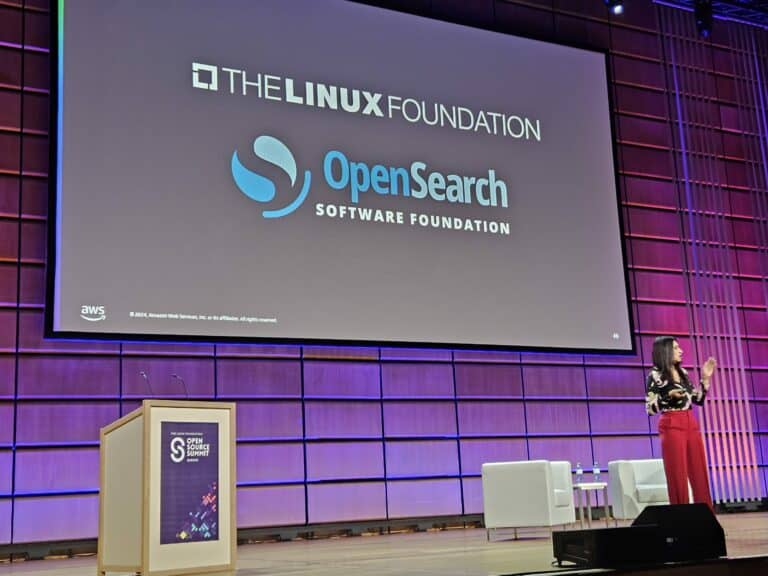AWS has transferred OpenSearch to the Linux Foundation. There it will get a new home in its own OpenSearch Software Foundation. As such, the software, developed in 2021 as a fork of ElasticSearch, is now part of the open-source community.
OpenSearch is a widely used search, analytics, and observability platform developed by AWS. That company hosted the software, though it leveraged input from thousands of contributors from the beginning. According to Nandini Ramani, AWS’ Vice President of Search and Cloud Operations, OpenSearch has been downloaded 700 million times since launch. The project currently has 200 contributors and is under the Apache license. Ramani made the announcement today at the Open Source Summit in Vienna.
AWS promises to remain committed to the further development of OpenSearch. Other parties that have embraced the project include SAP, Uber, Atlassian, and Canonical. The goal of adoption by The Linux Foundation is to further accelerate the adoption of OpenSearch across various mission-critical workloads and different industries from a ‘vendor-neutral’ environment, i.e., without one party putting its thumb too much on the scale.
The Linux Foundation’s support includes providing resources, certification, training, documentation, and facilitating collaboration between various parties involved.
‘Loyal community’
Within the Linux Foundation, the new Foundation is under the management of a technical steering committee. That body will be responsible for managing further development. “From the beginning, OpenSearch has brought together a fiercely loyal community of users, developers, and partners who recognized that for the project to truly thrive, it required open collaboration with contributions from a diverse set of stakeholders,” Ramani said.
“By transferring OpenSearch to the Linux Foundation, we are setting the project and its community up for its next stage of growth. With vendor-neutral governance that invites greater collaboration, along with programming and operational resources to further nurture the community, we look forward to working collaboratively with this new foundation to ensure everyone can continue to benefit from OpenSearch.”
‘More investments now than before’
At the Open Source Summit, Techzine discussed the transfer of OpenSearch with David Nalley, director of Open Source Strategy by AWS. According to him, it doesn’t mean his company will take its hands off OpenSearch. In fact, he predicts, ‘I expect we’re going to put more money and resources into it now than we did before.’ Exactly how much that is going to be, Nalley could or would not say. Nevertheless, he made it clear that AWS didn’t see OpenSearch as a donation and certainly not as an easy offload to the community. “It’s an investment for AWS because we think OpenSearch ultimately adds more value this way. For the community, but also for us.”
“You already saw things being added over the past few years that nobody envisioned at the time, such as geospatial applications,” Nalley further explained. “Yet those applications are there now, making the product more valuable. We hope that will happen even more now.” If it is up to AWS, its contribution to the project will eventually become relatively smaller. Not because the company would invest less in it but because other parties would do so much more.
More confidence in a neutral custodian
AWS forked ElasticSearch when maker Elastic gave the software a more limited licence. The company saw itself as a ‘custodian’ of this project from now on because it saw the value to its own business. “But we kept hearing from customers that they would have more confidence in OpenSearch if it came under neutral custodianship,” Nalley continued.
“One commercial party as maintainer may decide to make changes not in the business interest of other users. Such a scenario was even a reason for some other companies not to contribute further until a neutral administrator came in. That would also mean less investment in it by the community, which meant a risk of OpenSearch going nowhere.”
So, in the end, AWS is letting the interests of its customers weigh more heavily, although there is also a clear self-interest. “We would have wanted to keep it otherwise,” David Nalley concludes. “But ultimately, we think the community’s self-interest does not clash with our business interests, and perhaps even matches that.”
The roadmap for OpenSearch can be found here.
Also read: Oracle and AWS bury the hatchet: Oracle Database@AWS coming soon
